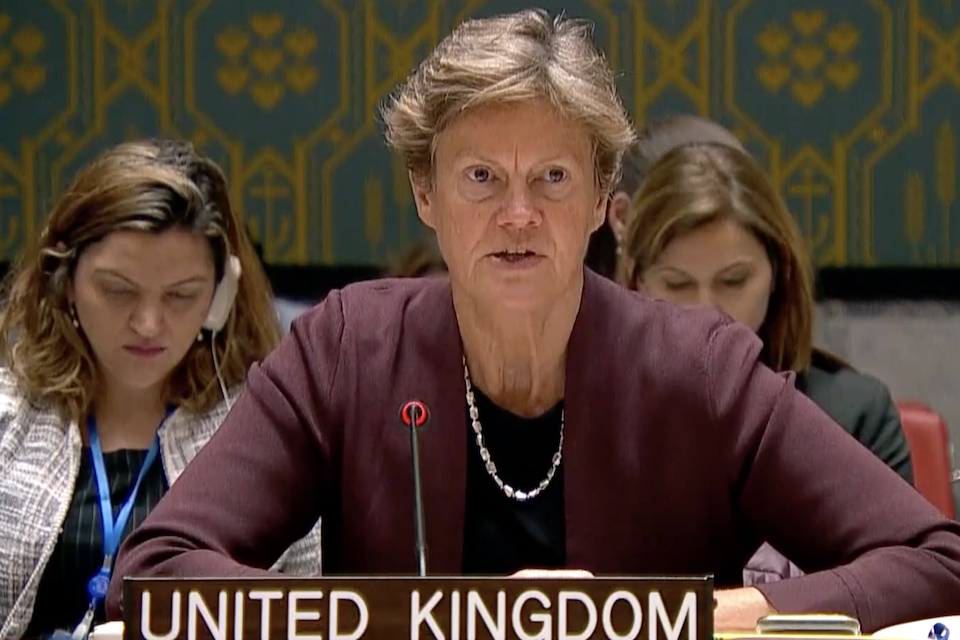Steps to prevent the worst consequences of climate change impacting future peace and security: UK Statement at the UN Security Council
Statement by Ambassador Barbara Woodward at the Security Council open debate on sea-level rise

Thank you President, and thank you for convening this important debate today. I join others in thanking all of our briefers today.
As we’ve heard, continued sea level rise will increase the likelihood and magnitude of coastal flooding. This could lead to an increase in recognised drivers of insecurity, such as humanitarian disasters, population displacement and competition for natural resources.
President, even if these impacts are not yet apparent at scale, this should not stop us from doing more to urgently limit global temperature rises to 1.5C above pre-industrial levels, to monitor and analyse these risks, anticipate and plan for them, and to prevent now the worst consequences of climate impacts on our security in the future.
I offer three ways we can do this:
Firstly, data and evidence gathering. This includes monitoring and analysis of conflict risks through a climate lens to better understand climate security risks at local and regional level. For this, we need to strengthen the capacity of the UN system to share and analyse information and integrate this into UN decision-making. The Council has a clear role in encouraging the UN system to consider and respond to the security implications of climate change.
Secondly, we need cohesive strategies to mitigate and address climate-related risks to peace and security issues, in a coordinated way. The UN system is well-positioned to coordinate efforts on peacebuilding, climate action and building resilience. Again, this Council has a clear role in driving a more coherent UN response to these challenges.
Thirdly, we need to build the resilience of coastal states. The UK Government has a number of programmes to strengthen resilience in developing countries against climate change, including the $600 million USD Blue Planet Fund, the $50 million USD Small Island Developing State Capacity and Resilience programme, as well as providing significant support through the Green Climate Fund.
Finally, President, I note the concerns of some member states around the risk of maritime border disputes resulting from climate-induced sea level rises, and whether maritime baselines should therefore be fixed. The UK is considering this carefully. We remain open to pragmatic and creative solutions and will continue to engage other states and the International Law Commission on some of these complex legal issues arising from this.
Thank you.